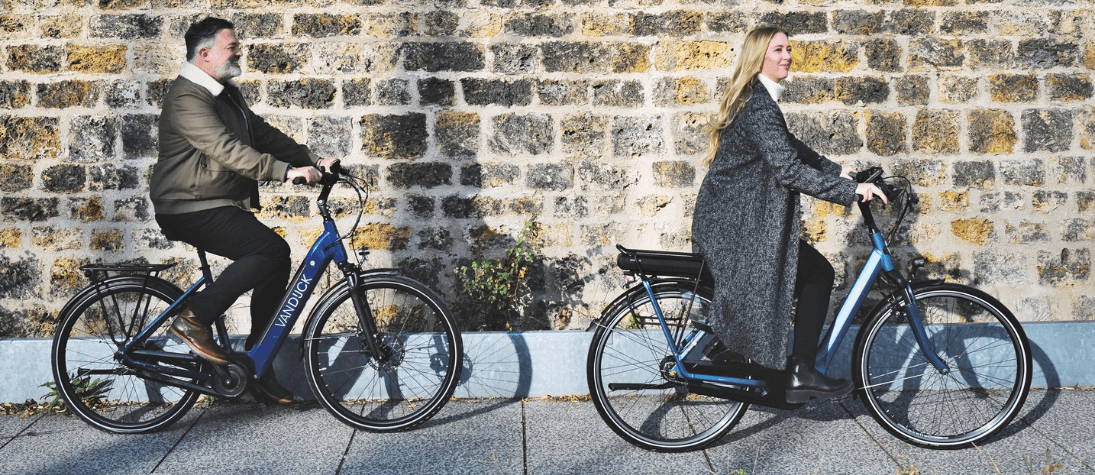A little history: the invention of the first electric bicycle

The history of the electric bicycle goes back more than a century. Indeed, the first attempts to electrify bicycles were made as early as the end of the 19th century. The invention of the first electric bicycle was made possible by a combination of factors. Firstly, the advent of electricity and related technologies, which made it possible to imagine the use of this energy to propel vehicles.
The first electric bicycle was created in the 1890s, at a time when innovations in transportation were flourishing. The first electric bikes were very different from the ones we know today. They were heavy and unwieldy, but they laid the foundation for an innovation that would revolutionize the world of transportation.
Since that first attempt, the electric bicycle has continued to evolve, benefiting from technological advances and the growing popularity of environmentally friendly modes of transportation. Today, the electric bicycle is considered a choice alternative for getting around town in an ecological and economical way.
The beginnings of the invention
The technological advances that led to the creation of the electric bicycle
In the 19th century, scientists turned their attention to electricity and its potential applications. It was at this time that batteries were invented, paving the way for a more practical use of electricity. The first electric motors were also created, which led to thinking about ways of using them to propel machines.
That's when some inventors started asking the question, "What if we used electricity to power a bicycle?" As we said earlier, the first prototypes were heavy and cumbersome, but the idea was there. Technological advances have led to better batteries and motors, making electric bikes more practical and efficient.
The visionary inventors who pushed this idea forward
Several inventors played an important role in the development of the electric bicycle. In 1895, Ogden Bolton Jr. filed the first patent for a "two-wheeled electric vehicle." In 1897, Hosea W. Libbey built an electric bicycle that could reach a speed of 32 km/h.
These visionary inventors paved the way for a new era in transportation, and made electric bikes what they are today: a practical and environmentally friendly alternative for getting around town.
The evolution of the electric bicycle over time
Technological advances that have improved the electric bicycle
Over the past few decades, technological advances have greatly improved the performance and practicality of electric bikes. Electric motors have become smaller and lighter, yet more powerful. Batteries have also evolved, offering longer range and faster and faster charging.
Modern electric bikes are also equipped with many advanced features, such as LCD screens to display information on speed, battery life and distance covered. Most models are also equipped with safety features such as warning lights and anti-lock braking systems.
Current commercial uses
Today, electric bikes are increasingly popular, especially city bikes, which have become a practical and environmentally-friendly alternative to cars and public transport. Self-service electric bike rental services have proliferated in many cities, enabling users to get around easily without having to buy their own electric bike.
Electric bikes are also used for goods deliveries, particularly in urban areas with heavy traffic. Delivery companies such as Amazon and UPS (particularly in the USA, where they are widely tested) have begun using electric bikes for their deliveries to reduce their environmental impact and improve efficiency.
Finally, electric bikes are increasingly used for leisure and outdoor activities. Cyclists can cover longer distances without tiring, while MTB electric bikes can climb the steepest slopes with ease.
In short, technological advances have allowed the electric bicycle to evolve from a simple means of practical transportation to an environmentally friendly, economical and efficient alternative to other modes of urban travel. Commercial uses of electric bikes have multiplied, offering new opportunities for businesses and individuals, while contributing to the preservation of the environment.

Technical evolutions that have democratized the use of the VAE
In France, electric bikes are becoming increasingly popular. According to data from the Cycle Observatory, sales of electric bikes increased by more than 30% in 2020 compared to the previous year, with nearly 400,000 bikes sold. Electric bikes now account for more than half of all bike sales in France.
The commercial use of electric bicycles has also increased in France. Self-service electric bicycle rental services are available in many cities, with operators such as Vélib' in Paris, Vélo'v in Lyon, and VélôToulouse in Toulouse. According to the French Environment and Energy Management Agency, more than 14,000 self-service electric bicycles were available in France in 2020, with nearly 70,000 subscribers.
Electric bikes are also used for goods deliveries, particularly in urban areas. According to Ademe, electric bike deliveries increased by over 70% in 2020 compared with the previous year, with around 30,000 deliveries made every day by electric bike.
Finally, EABs are also used for leisure and outdoor activities. According to data from the Cycle Observatory, sales of MTB electric bikes increased by more than 40% in 2020 compared to the previous year, with nearly 75,000 bikes sold.
The environmental benefits of electric bicycles
An ecological alternative to polluting transport
If you're concerned about the environment, an electric bike is the perfect transportation choice for you. Unlike cars, motorcycles and scooters, electric bikes produce no polluting emissions or greenhouse gases. By pedaling an electric bike, you can help reduce air pollution and the impact of climate change, and get some exercise at the same time! Using an electric bike to get around town can also help reduce traffic congestion, which is good for everyone.
The various possible uses of electric bicycles to help protect the environment
The EV is an ecological alternative to motorized transport. Indeed, its use allows to significantly reduce greenhouse gas emissions and fine particles.
According to a study conducted by ADEME (the French Agency for Ecological Transition), using an electric bike for a 10 km commute reduces CO2 emissions by 90% compared with a diesel car and 86% compared with a petrol car. For the same distance, fine-particle emissions are reduced by 99.9% compared with a diesel car and 98% compared with a petrol car.
In France, the electric bicycle market is growing exponentially. In 2020, according to the Cycle Observatory, more than 850,000 electric bicycles were sold in France, an increase of 31% over the previous year. This growth is due in part to consumer awareness of the environmental impact of motorized modes of transportation.
In addition, the use of electric bicycles for travel in the city reduces road congestion and therefore greenhouse gas emissions. According to a study conducted by ADEME, if only 10% of home-to-work trips in France were made by electric bicycle, this would reduce CO2 emissions by 3.7 million tons per year.
In conclusion, the use of the electric bicycle is an ecological and responsible alternative to motorized transport. The environmental benefits of electric bikes are undeniable and the figures prove it. In addition to reducing greenhouse gas emissions and fine particles, the use of electric bicycles for urban travel helps reduce traffic congestion and therefore improve air quality. The electric bicycle is therefore a major issue for the future!

To conclude
The electric bicycle, an innovation that has transformed urban transportation
The electric bike is the revolution on two wheels. No more traffic jams, no more exhaust fumes, no more endless car journeys. Thanks to the E-bike, you can get around quickly, easily and without polluting the environment. Just pedal, feel the wind in your hair and arrive at your destination with a smile. And what's more, technological advances have made it possible to create electric bikes that are increasingly efficient, light and stylish. What more could you want?
Prospects for the future of electric bicycles
The future of electric bicycles is looking bright. More and more people are choosing electric bikes for their daily commute, companies are offering fleets of electric bikes for their employees, governments are promoting sustainable modes of transportation. The electric bike has a vital role to play in sustainable mobility, not only in cities, but also in rural and underserved areas. Imagine pedaling down a country road, enjoying the scenery while protecting the environment. Doesn't that make you want to?
In conclusion, the electric bicycle is much more than a simple means of transportation. It is a way to get around while respecting the environment, to take care of one's health, to live moments of freedom and relaxation. And with technological advances that are more and more promising, the electric bicycle seems to continue its development. So, on your handlebars, get set, go!